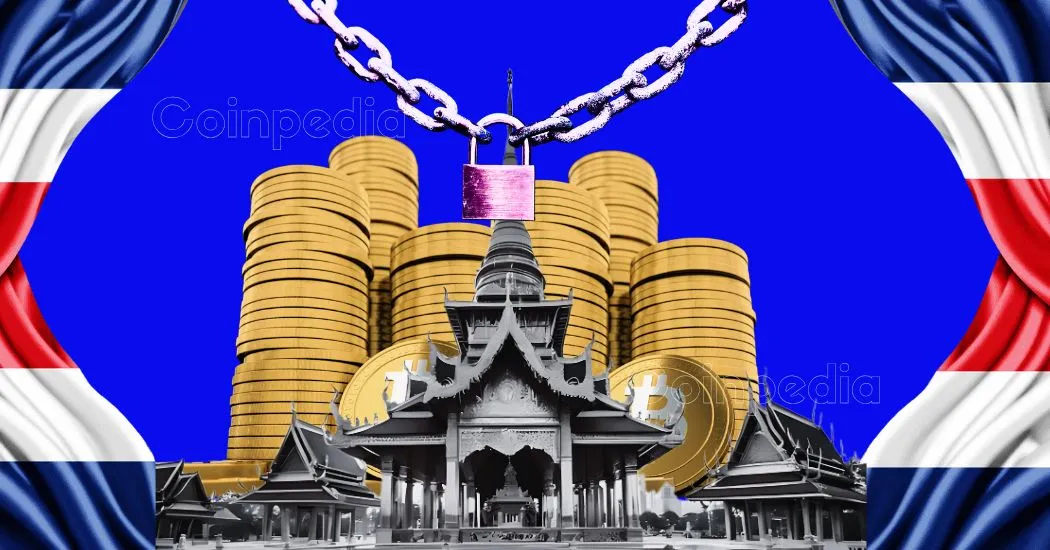
Cryptocurrency exchange platforms have dramatically transformed the global financial landscape, granting investors unprecedented access to digital asset trading with relative ease. Yet, as these platforms proliferate, regulatory responses worldwide have varied widely, reflecting deep tensions between fostering innovation and enforcing legal oversight. Recently, Thailand has positioned itself firmly on the regulatory frontlines by targeting five major cryptocurrency exchanges—Bybit, OKX, CoinEx, 1000X, and XT.com. On June 28, 2024, the Thai Securities and Exchange Commission (SEC) moved to block access to these platforms, highlighting a complex interplay of investor protection, regulatory authority, and efforts to curb illicit financial activities.
The crux of Thailand’s decisive action lies in the lack of proper licensing by these exchanges to operate within the country. The Thai SEC underscored that these five exchanges had been offering services to Thai residents without securing the necessary regulatory approvals mandated by local law. Such licensing requirements are not merely formalities—they serve to enforce market transparency, consumer safety, and crucial anti-money laundering (AML) protocols. By denying access, Thailand is asserting its jurisdiction and expressing zero tolerance for unauthorized platforms that operate in the shadows, weaving through legal cracks while exposing investors to unchecked risks.
This crackdown must be understood in the context of Thailand’s expanded regulatory powers. Empowered agencies now have the ability to block websites and applications providing unlicensed financial services to local users. These technical measures act as robust barriers, physically restricting access and supporting traditional enforcement tools. The rationale extends beyond punitive intent; it is also about shielding retail investors from the consequences of engaging with unauthorized platforms prone to fraudulent schemes, poor transparency, and absence of consumer safeguards. Over recent years, unregulated exchanges worldwide have courted trouble by enabling scams and operational opacity, and Thailand’s move is clearly designed to reduce its citizens’ exposure to such hazards and build trust in officially sanctioned digital asset providers.
In parallel with access restrictions, the Thai SEC has taken a proactive stance through legal challenges against these exchanges. Litigation against firms allegedly circumventing local laws sends a strong message—not just to the targeted entities, but to all players eyeing the Thai market without regulatory compliance. This approach fosters a more disciplined ecosystem where exchanges are incentivized to engage constructively with regulators, promoting healthier market standards. The resulting ripple effect could usher in a more sustainable cryptocurrency environment in Thailand, one that better balances innovation with accountability.
Another driving force behind the ban is the urgent need to combat money laundering and other illicit financial flows that crypto platforms can inadvertently facilitate. The decentralized and semi-anonymous nature of cryptocurrencies often complicates traditional financial oversight, challenging the enforcement of AML regulations. Thailand’s strategy—to cut off access to unlicensed exchanges—acts as a preventive firewall against channels potentially exploited for illegal fund transfers. Ensuring that digital currency transactions align with established financial crime laws remains a cornerstone of maintaining market integrity, even as blockchain technology continues to evolve.
Thailand’s regulatory interventions also mirror a broader global pattern: governments worldwide are grappling with harmonizing technological advancement and innovation with robust consumer protection and enforcement frameworks. While cryptocurrencies represent significant opportunities for financial inclusion and technological growth, their rapid expansion requires equally agile regulation. Thailand’s SEC appears committed to fostering a tightly regulated environment, where only authorized entities equipped with sufficient safeguards can operate, setting potentially valuable precedents for other jurisdictions navigating similar challenges.
Operationally, the blocking measures are being implemented by the Ministry of Digital Economy and Society, which undertakes the technical work to ensure Thai residents cannot access the targeted platforms. This coupling of technical and legal tools strengthens the overall enforcement architecture, making it nearly impossible for non-compliant exchanges to continue operating unchecked within Thailand. For local users, this means that, effective from the enforcement date, they will no longer be able to register or trade on these five exchanges through Thai internet and app channels.
For the affected exchanges, the shutdown poses immediate business difficulties and reputational damage. Yet, it may also serve as a catalyst pushing them towards formal licensing negotiations and regulatory cooperation, ultimately seeking legitimacy in a growing but increasingly scrutinized market. The evolving regulatory landscape might drive digital asset exchanges toward standardized practices, which could, in turn, enhance market trust and sustainable growth in Thailand’s crypto sector.
In essence, Thailand’s decision to block Bybit, OKX, CoinEx, 1000X, and XT.com represents a bold regulatory milestone designed to enforce licensing compliance, protect investors, and dismantle avenues for illicit financial conduct. Although this imposes short-term restrictions on users and some businesses, it signals a long-term commitment to building a legitimate, transparent, and resilient cryptocurrency ecosystem. As the digital asset landscape accelerates, Thailand’s firm stance may well lay a foundational framework for balancing innovation with regulation, securing both market integrity and investor confidence in an era defined by rapid financial technology change.






